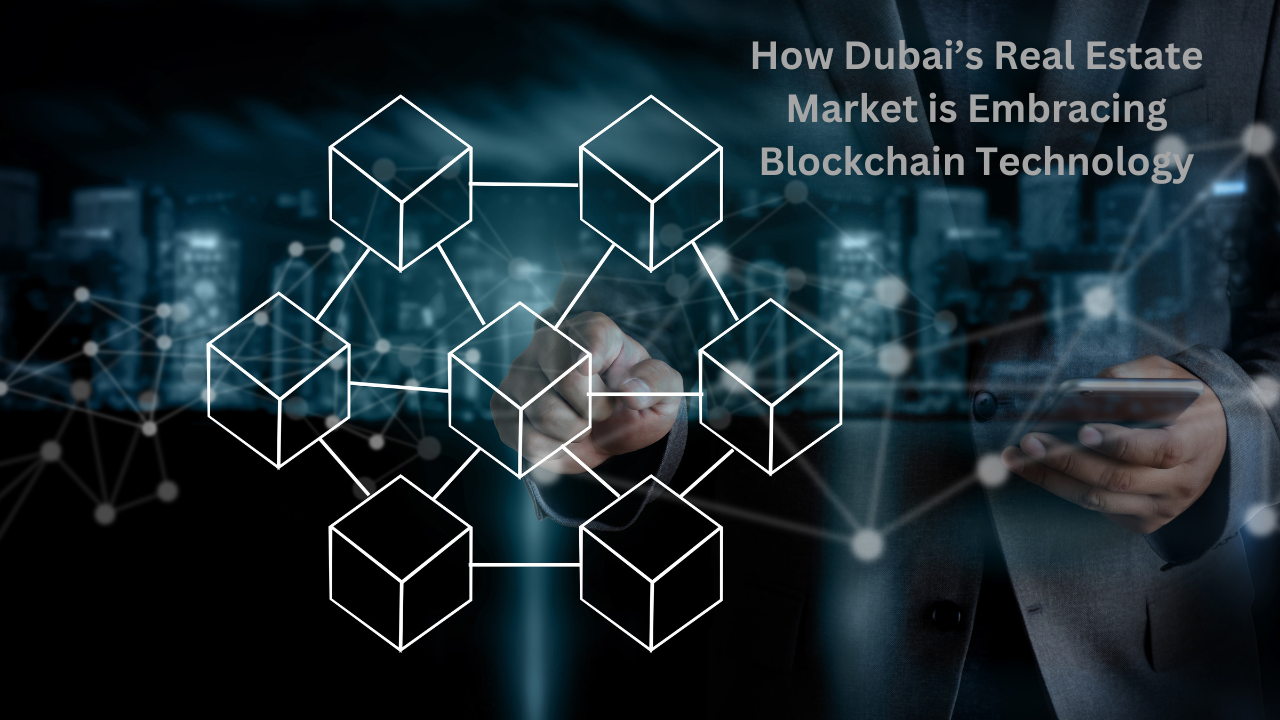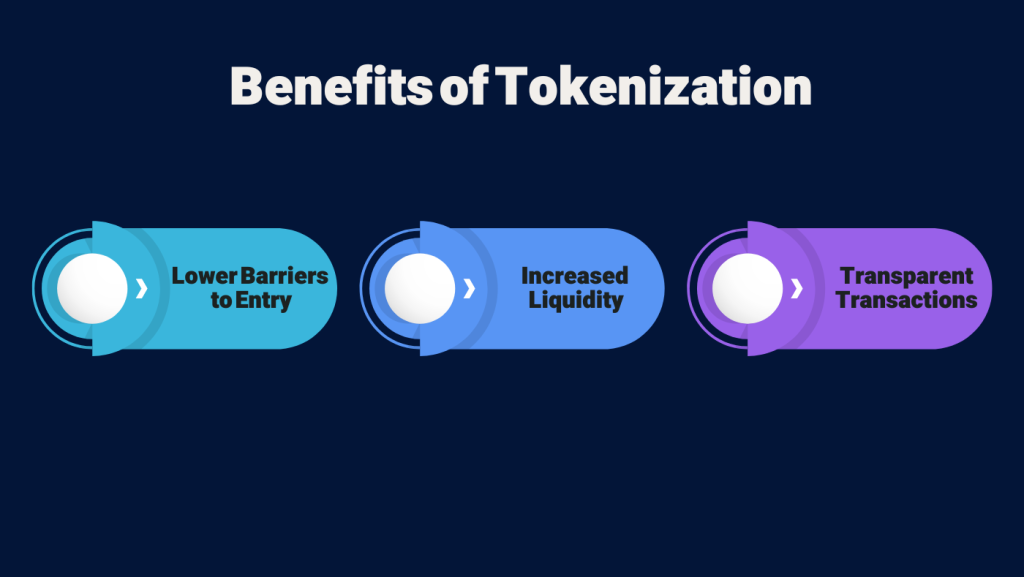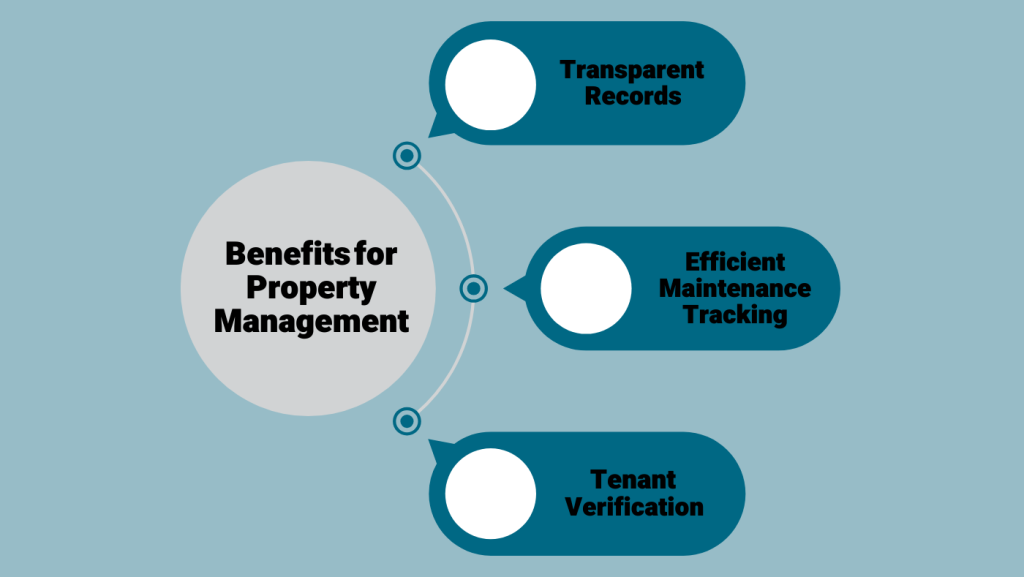

Dubai’s real estate market, known for its innovation and rapid development, is increasingly integrating blockchain technology. This shift is revolutionizing the industry, enhancing transparency, efficiency, and accessibility for investors and stakeholders alike. The UAE government actively promotes blockchain initiatives. Likewise, Dubai is positioning itself as a global leader in the adoption of this transformative technology in real estate. This article explores how the embracement of Dubai’s real estate market and blockchain technology, as the facilitator of the process of tokenizing a property, is happening and the benefits it brings.
💥 #Dubai Opens Door For #Crypto Adoption. #Bitcoin And #Ethereum Holders Can Now Buy Properties In Dubai Using Their Tokens
Source: @Investingcom pic.twitter.com/SDllz0hOZn
— $SHIB KNIGHT (@army_shiba) April 30, 2022
1. The Government’s Vision
The UAE government has been a strong advocate for blockchain technology, aiming to position Dubai as a smart city and a hub for technological advancements. The Dubai Blockchain Strategy, launched in 2016, aims to ensure that all government documents are stored on a blockchain by 2020, significantly reducing bureaucracy and enhancing transparency.
Regulatory Framework
To support this vision, Dubai has established a regulatory framework of fractional property ownership that encourages the use of blockchain in Dubai real estate transactions. The Dubai Land Department (DLD) has partnered with various technology firms to develop blockchain solutions that streamline property registration, ownership verification, and transaction processes.
2. Blockchain integration with Dubai’s real estate; Tokenization of Real Estate
One of the most significant advancements in the utilization of blockchain in real estate sector is the tokenization of properties. This process involves converting physical real estate properties into digital tokens on a blockchain. Each token represents a fraction of the property, allowing for fractional ownership and democratizing access to real estate investment.
Benefits of Tokenization

- Lower Barriers to Entry: Tokenization allows smaller investors to participate in high-value properties, making real estate investment more accessible.
- Increased Liquidity: Traditionally, real estate investments are illiquid. Tokenization enables the buying and selling of property shares on secondary markets, improving liquidity.
- Transparent Transactions: Blockchain technology ensures that all transactions are recorded transparently and immutably, reducing fraud and increasing trust among stakeholders.
3. Enhanced Security and Efficiency
Blockchain technology ensures security in Dubai’s real estate transactions as well as efficiency. Smart contracts, self-executing contracts with the terms of the agreement directly written into code, streamline processes and reduce the need for intermediaries. This is one of the most important benefits of utilizing blockchain technology in the Dubai real estate sector.
Streamlining Transactions
- Faster Closures: Traditional property transactions can be lengthy and complex. Smart contracts automate many aspects of the process, allowing for quicker and more efficient closures.
- Reduced Costs: By minimizing the need for intermediaries such as brokers and notaries, blockchain can significantly lower transaction costs.
- Error Reduction: The use of smart contracts reduces human errors, ensuring that terms are met automatically, further enhancing the reliability of transactions.
4. Empowering Property Management

The application of Blockchain technology and the Dubai real estate market also empowers property management by improving record-keeping and communication between landlords and tenants.
Benefits for Property Management
- Transparent Records: All transactions and changes in property status can be recorded on the blockchain, providing a clear history of ownership and management.
- Efficient Maintenance Tracking: Property managers can track maintenance requests and responses on the blockchain, ensuring transparency and accountability.
- Tenant Verification: Blockchain can streamline tenant verification processes by securely storing tenant information and rental histories, reducing the risk of fraud.
5. Innovative Platforms and Startups
Numerous startups and platforms are emerging by leveraging blockchain technology in Dubai’s real estate sector, to provide innovative solutions. These platforms focus on tokenizing real estate assets, allowing investors to buy fractional ownership in Dubai properties. They emphasize transparency and security through blockchain technology. Many platforms are now offering real estate crowdfunding opportunities. They allow investors to pool funds and invest in tokenized properties in Dubai.
6. Enhancing Buyer and Investor Experience
The overall experience for buyers and investors is enhanced by utilizing blockchain technology in Dubai’s real estate market.
Improved Due Diligence
- Access to Information: Blockchain allows for easy access to comprehensive property information, including ownership history, property condition, and transaction records. This transparency empowers buyers to make informed decisions.
- Reduced Fraud Risk: The secure nature of blockchain reduces the risk of fraud in property transactions, ensuring that buyers can trust the information provided.
Greater Investor Confidence
- Regulatory Compliance: The integration of blockchain ensures compliance with local regulations, providing confidence to investors that their transactions are legitimate and secure.
- Global Accessibility: Investors from around the world can easily participate in Dubai’s real estate market through tokenized assets, increasing the market’s appeal.
7. Sustainability and Smart Contracts
Dubai continues to push for sustainability in its development plans. Dubai real estate market with Blockchain technology can play a crucial role in promoting environmentally friendly practices in the real estate sector.
Smart Contracts for Sustainability
- Green Certifications: Smart contracts can automate the verification of green building certifications and energy-efficient practices. They promote sustainable development in Dubai’s real estate sector.
- Incentives for Sustainable Practices: Blockchain can facilitate the creation of incentives for developers and property managers. By implementing sustainable practices, Blockchain encourage a greener approach to real estate.
8. Future Outlook
By integration of blockchain technology with Dubai’s real estate market, the future appears bright. As more stakeholders recognize its benefits, the adoption of blockchain will likely accelerate.
Potential Developments
- Wider Adoption: As regulatory frameworks mature and more platforms emerge, the adoption of blockchain technology will become more widespread across the real estate sector.
- Enhanced Collaboration: Collaboration between government entities, technology firms, and real estate developers will foster innovation and drive further advancements in blockchain applications.
- Integration with Other Technologies: The synergy between blockchain and other emerging technologies, such as artificial intelligence and the Internet of Things (IoT), will likely lead to more efficient and smarter real estate solutions.
Conclusion
Dubai’s real estate market is embracing blockchain technology, transforming the industry in numerous ways. From enhancing transparency and security to enabling fractional ownership and streamlining transactions, blockchain is reshaping how properties are tarded and managed. With government support, innovative start-ups, and a forward-thinking approach, Dubai is poised to become a global leader in the adoption of blockchain in real estate. Homecubes, is the leading platform for real estate tokenization in the Dubai market. We have developed our blockchain-based platform in full compliance with UAE regulation. We encourage you to contact us for detailed information about our lucrative property tokenization projects in Dubai.










